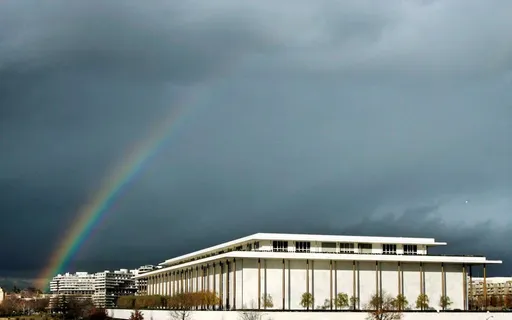East Timor's first democratically elected head of state, Xanana Gusmao, has returned to power, eight years after he resigned as prime minister of Southeast Asia's youngest democracy.
Crowd cheered as the former guerrilla leader traveled by motorcade to the presidential palace in Dili, the capital, where he and his members of Cabinet were sworn into office on Saturday by President Jose Ramos-Horta, his fellow independence fighter during Indonesian rule.
“I promise to carry out the tasks that the people have entrusted to me and to bring prosperity to the Timorese people through government programs,” Gusmao said at the swearing-in ceremony.
He pledged to provide opportunities for local governments to design their own development programs, including those to improve health services for mothers and children.
Indonesian President Joko Widodo’s envoy, Coordinating Minister of Maritime and Investment Luhut Binsar Pandjaitan, and Singapore’s Foreign Minister Vivian Balakrishnan were among those who attended the inauguration. The 77-year-old independence icon was credited with unifying the country during his first two stints in office.
Gusmao's party, the opposition National Congress for Timorese Reconstruction (CNRT), won May's election in a landslide, defeating the incumbent coalition led by resistance movement turned political party Fretilin.
Gusmao was chosen as prime minister again after CNRT allied with the Democratic Party to secure a majority in parliament.
The son of teachers of Portuguese-Timorese descent, Gusmao grew up in what was then a Portuguese colony. He joined the Revolutionary Front for an Independent East Timor (Fretilin) in 1975, fighting for independence first from Portugal and then Indonesia.
Born Jose Alexandre Gusmao, he adopted the code name Xanana, reportedly in connection with a popular doo-wop song.
He quickly rose through the ranks of the resistance and became leader of Fretilin's military wing, Falintil, in 1981, spending much of his life in the jungle with fellow fighters.
When he was captured by Indonesian forces in 1992, he continued to lead the struggle from jail in Jakarta.
'Kingmaker'
After East Timor voted for independence in a UN-backed referendum in 1999, Indonesian authorities released Gusmao from jail and he returned to his homeland revered as a national hero.
But his country would not secure independence for another three years.
After the referendum, pro-Indonesian militias went on a murderous rampage, adding to the bloody toll, which after more than two decades caused an estimated nearly 200,000 deaths.
In 2002, Gusmao became the country's first post-independence president and worked to unify the country.
Following his five-year term as president, he became prime minister in 2007 followed by a second term in 2012.
While he was credited with steering the country through several early crises - including an attempted mutiny in 2006 that sparked factional violence - he was also criticised for authoritarian tendencies, particularly during bouts of instability.
In 2008, he escaped unharmed an attack on his home that was linked to an assassination attempt against then-president Jose Ramos-Horta, who was wounded in a shooting.
Gusmao resigned early in 2015, saying it was time for a younger generation of leaders.
He retreated behind the scenes but, according to analysts, he continued pulling strings, and was often seen as the kingmaker in Southeast Asia's youngest nation.
But with a rift between the two main political parties effectively paralysing the political system, Gusmao agreed to return to power.
As he retakes the reins of the country of 1.3 million, Gusmao will have to confront not only the growing political schism and after effects of the Covid pandemic, but also a deepening economic crisis as the nation's petroleum fund is quickly depleted.
The country has a significant young population — 65% are below 30. It is also among the world’s most impoverished. More than two decades after receiving formal independence in 2002, there is a lack of basic infrastructure including a reliable electricity supply and paved roads in rural areas.
“He has a charisma and rich experience as a leader,” a Dili resident, Joao Agustino Sarmento, said of Gusmao. “But we want to see him make more significant changes with his new government to overcome poverty and unemployment that still face our country.”
East Timor’s transition to a democracy has been rocky, with leaders battling massive poverty, unemployment and corruption. The economy is reliant on dwindling offshore oil revenues.
























